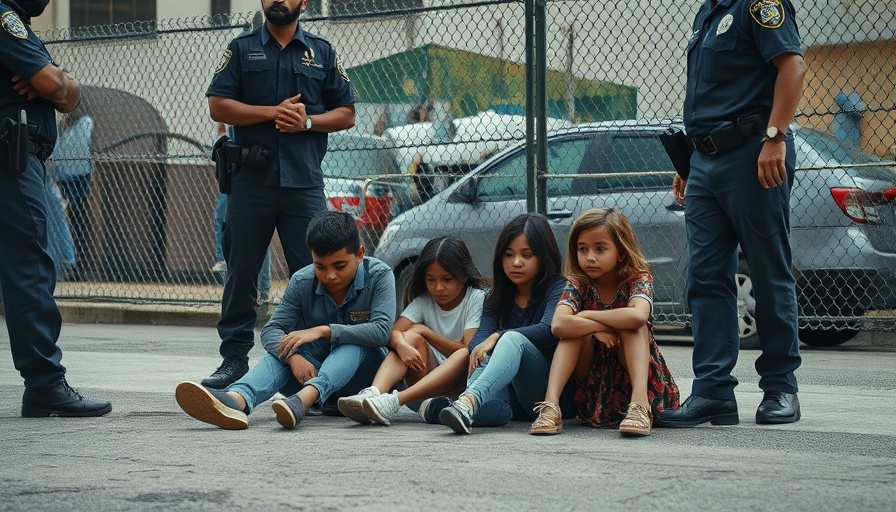
Living Through Trauma: The Impact of ICE Operations on Families
In recent events in Santa Ana, California, women and children found themselves facing armed ICE agents while simply sitting on a curb, an image that starkly encapsulates the trauma that immigrant families endure in the current climate. As they sat in front of a school, fear and confusion marked the scene as the authority figures towered over them, rifles in hand. This harrowing situation unfolds a broader narrative about the experiences of immigrants in Southern California and the alarming reality of law enforcement actions that disrupt everyday life.
Understanding the Context: ICE’s Role and Public Reaction
The operations led by ICE and ATF, which have become a frequent reality in many communities, invoke profound responses from the public. Witnesses reported seeing several individuals arrested during these operations, but the fate of the families who were present remains uncertain. These events raise essential questions about civil rights, law enforcement protocol, and the responsibilities of governmental agencies to protect communities rather than instill fear.
The Human Cost of Enforcement Actions: Personal Stories
Amid systemic challenges, individual stories shine a light on the impacts of these operations. The statement shared by Milagro Portillo’s family highlights issues not only with immigration enforcement but also with healthcare systems that fail vulnerable populations. In this particular case, the family expressed their outrage against Anaheim Global Medical Center, illustrating that the intersections of health, law enforcement, and immigrant status are fraught with danger and discrimination. This blends personal tragedy with calls for accountability across public services.
Broader Trends: How Societal Attitudes Are Shaping Response
As ICE operations ramp up, public sentiment is shifting. The recent grand jury’s refusal to indict individuals involved in attacks against federal agents during protests reflects a growing dissatisfaction with how these raids are perceived among community members. Legal experts have voiced concerns about the lengths to which some prosecutors may go to conform to political pressures—creating a challenging landscape for justice.
Future Implications: A Society at a Crossroads
As we move forward, understanding the implications of these operations is crucial not just for immigrants but for society as a whole. The dynamics at play underscore systemic inequalities that reverberate through various sectors, including law enforcement, healthcare, and community relations. It begs the question: what kind of society do we want to create, and what pathways can we pursue to ensure fairness and dignity for all our residents?
Taking Action: Community Support and Awareness
In the face of adversity, community support shines through. Several organizations are advocating for immigrant rights, providing resources and assistance to those impacted by ICE actions. The importance of solidarity and awareness in these times cannot be overstated, as putting pressure on local authorities and demanding accountability can resonate with a larger movement for change.
Conclusion: Why This Matters
The distressing scenes we witness today are a reflection of broader systemic issues surrounding immigration, law enforcement, and community health. It’s vital for those who care about social justice, healthcare, and immigrant rights to stay informed and engaged. By understanding the nuances of these events, we can better advocate for our communities and a more equitable future.
 Add Row
Add Row  Add
Add 




Write A Comment